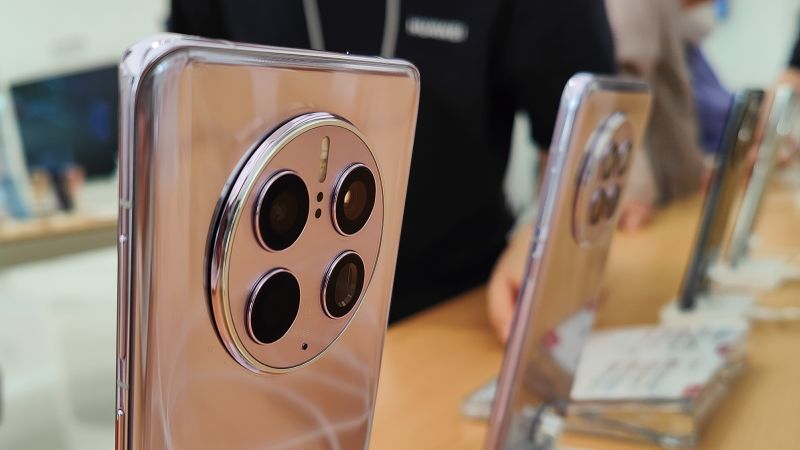

Washington
CNN Business
—
The US government is poised to ban all purchases of new telecom equipment from Huawei and ZTE, two Chinese technology giants, in an expanding crackdown against perceived national security risks from China, according to a report by Axios.
The restrictions, outlined in a draft order by the Federal Communications Commission, would also target sales of video surveillance gear by three other Chinese firms: Hytera, Hikvision and Dahua, according to Axios. It added that the ban would only apply to new products by the companies that have not already received FCC equipment authorization.
Asked for comment, an FCC official confirmed the proposal’s existence and told CNN that, if approved, it would update agency rules surrounding its list of providers deemed to be unacceptable national security risks — and further fulfill the agency’s congressional mandate under the Secure Equipment Act of 2021.
Spokespeople for the companies didn’t immediately respond to requests for comment.
The proposed ban would go further than prior steps the FCC has taken against Huawei and ZTE, whose networking equipment US officials have said could be used to intercept or monitor US communications.
Previously, the FCC restricted US telecom carriers from using federal funding to purchase products from Huawei and ZTE, as well as from other providers on the agency’s so-called “covered list.” The FCC has also established a program to help carriers “rip and replace” Huawei and ZTE gear from their networks, though the program’s estimated cost has ballooned to $5.6 billion, up from initial estimates of around $2 billion.
The top US wireless carriers have said they do not use Chinese-made equipment; telecom policy experts have said it is almost exclusively found in the networks of small providers seeking to minimize costs.
Separately, in 2019, the Trump administration added Huawei to the Commerce Department’s so-called Entity List, which restricts exports to people and organizations named on the list without a US government license. The following year, the US government expanded on those restrictions by seeking to cut Huawei off from its chip suppliers that use US-made technology.
The policies have contributed to sharp declines in Huawei’s telecom and handset businesses as the company has sought to shift focus to cars, cloud computing and its own mobile operating system.
Huawei’s founder and CEO has previously claimed the company would never hand data over to the Chinese government, but western security experts have said the country’s national security and intelligence laws require Chinese companies to comply with demands for information.
